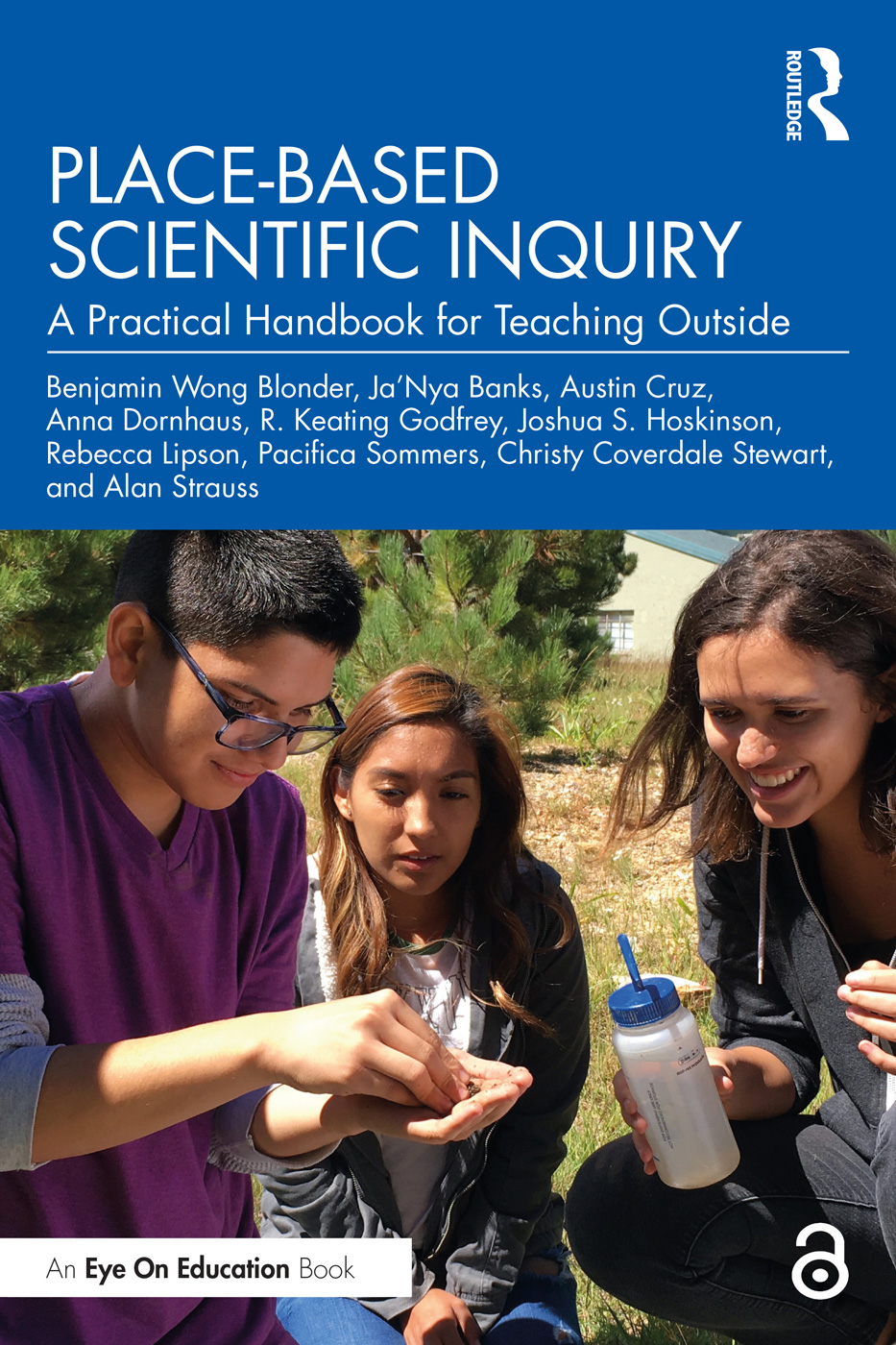
Environmental Science, Policy, and Management professor Benjamin Wong Blonder has co-authored a new handbook for K-12 teachers interested in integrating placed-based teaching into their curriculum.
The open-access book Place-Based Scientific Inquiry: A Practical Handbook for Teaching Outside was published in March by Routledge. Blonder, who led a 10-person team from UC Berkeley and the University of Arizona, said the book serves as a hands-on guide for elementary, middle, and high-school teachers who want to connect their students to local communities and places, and teach science using a land-based and justice-focused approach.
Written according to the Next Generation Science Standards, “Place-Based Scientific Inquiry” book draws on authentic inquiry, engaging with communities, and teaching through project-based learning to help students design and carry out scientific inquiry projects that are grounded in their local places. The handbook will help teachers develop skills around facilitation, team building, and learning outdoors in schoolyards and parks, acting as a go-to toolkit for teachers to help build confidence and skills in these areas.
“The book comes out of a decade of environmental education experience in Arizona, and is written to help share some of the best practices from these experiences with a national audience,” Blonder said. “We include extensive photographs of real students working on different project stages, as well as examples of real student work and reflections."
Additional support materials including template documents for student use and for teacher planning, as well as examples of real student work, are available online at the publisher’s website. All royalties from this book are being donated to student support access to the University of Arizona’s Sky School, which provides multi-day K–12 STEM programs to public schools in Arizona.
